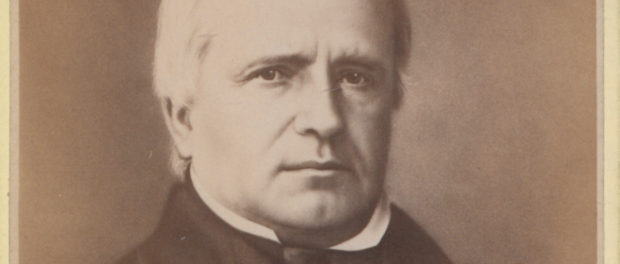1848: Louis-Hippolyte La Fontaine & Other Quebec Curios
Part of “Division and Resistance”, 1827-1863
Papineau’s return to Canada East and subsequent runs for politics did not go unnoticed and while his influence was no longer that of his glory days during the 1830s, he still had a reasonable amount of support with the Parti rouge, the new generation of intellectual radicals. Papineau’s return to the political arena marked a changed in Parti rouge attitude: they developed a staunch anti-La Fontaine attitude. La Fontaine was too much of a moderate for the Parti rouge, but his ties with Papineau went further than just being an amicable rivalry between two politicians with opposing views.
Louis-Hippolyte La Fontaine (also cited as Lafontaine, with or without the F capitalised) was twenty-eight when he started his law career in 1828 and not long after, he heard the call of politics. Initially attracted to Papineau’s ideals of separation of church and state and a truly responsible government, La Fontaine was a strong supporter of the Patriote cause, attending rallies and publishing in La Minerve. However, when Papineau called for an armed rebellion, La Fontaine split with a group that he thought would be too radical to truly achieve their goals. La Fontaine, however, remained cordial to Papineau, visiting him in the United States during the period of the rebellions, only to find himself imprisoned with fellow politicans when he returned to Lower Canada in December of 1838. Unlike some of his colleagues, he escaped with his life and started to try to find a constitutional solution to the grievances that the Patriotes had fought and died for.
La Fontaine believed he had found a way to integrate the Patriotes’ demands with the British governmental system. Unlike Papineau, who willed for an annexation by the United States, La Fontaine came to the conclusion that a union between the two provinces, despite the risks of French-Canadian assimilation, could be the only way for responsible government to see the light of day. When he ran for office in the district of Terrebonne and lost to a rival who had the support of one of the old factions of the Patriotes, he nonetheless had manoeuvred about during the campaign to gain enough support from people who were actually elected to the House of Assembly. His fortune, however, was about to change. Robert Baldwin, a politician in Canada West, had heard of La Fontaine’s work and stood down from his own seat so that La Fontaine could be elected in his place. La Fontaine, even though he was elected in a province that was an English-speaking majority, insisted on speaking French during the debates; it is said that his adamant stance led to the repeal against the use of the French language in the House of Assembly that was initially in the Act of Union.
La Fontaine would not see the last of Robert Baldwin, and he would form a ministry with him in 1842 and once more in 1848. Initially pushing the idea of responsible government during his first ministry, the Governor General, Charles Metcalfe, opposed the idea and La Fontaine resigned. The second time, in 1848, he would be successful.






